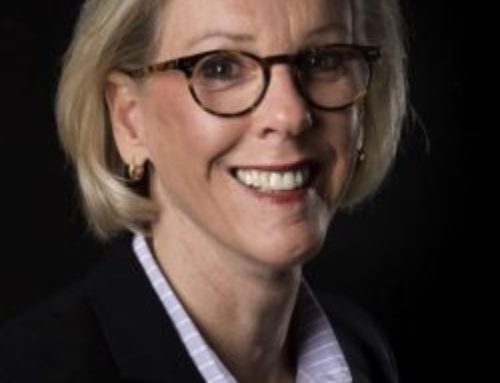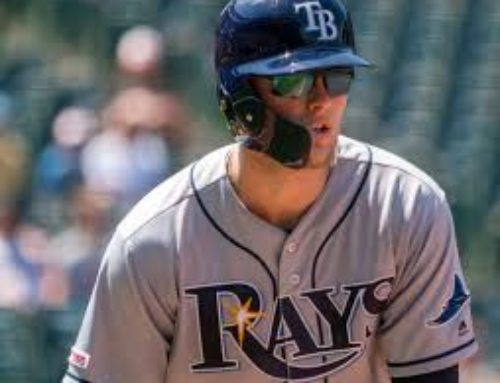Freddie Solomon, a leader on the field and in the community, faces down his cruelest foe: cancer.
By JOEY JOHNSTON
The Tampa Tribune
(c) Tampa Bay Times. Originally published Nov. 27, 2011.
TAMPA — Freddie Solomon, a man for others, finally was forced to focus on himself. He felt something was wrong. His face was gaunt and his pants were sagging. Last spring, he looked in the mirror.
“I saw a skeleton,” Solomon said. “I saw a person I didn’t know.”
At the doctor’s office, as he joined hands with Dee, his wife of 33 years, and one of his best friends, former San Francisco 49ers owner Eddie DeBartolo Jr., Solomon didn’t pretend to have false hope as he braced for the diagnosis. He just knew.
It was colon cancer. Already, some cancerous lesions had spread to his liver.
Former football teammates were shaken. They never knew anyone more alive than Freddie Solomon.
That’s why the DeBartolo family, the University of Tampa and the Hillsborough County Sheriff’s Office have joined forces to produce a special event, Freddie and Friends, to pay tribute to Solomon at UT’s Vaughn Center on Wednesday night. That’s 37 years to the day since the UT Spartans played the program’s final football game.
Solomon, 58, is optimistic about his health. He underwent successful surgery to reconstruct his colon. By next month, he’s scheduled to complete his 12th and final round of chemotherapy, the treatment to eradicate the liver lesions.
He wants others to learn from his mistakes. Had he undergone a routine colonoscopy, recommended for men his age, it’s possible this could have been detected much earlier and perhaps avoided.
“It’s just another football game for me,” Solomon said. “I don’t feel sorry for myself. I just keep fighting. And I know I’m not alone.
“This teaches me about me. I have no regrets. How you handle something like this tells you who you are. In reality, I’m just one of thousands of people who have to compete in this game.”
Solomon is closer to one in a million.
“Fabulous Freddie,” as he was known in Tampa, accounted for 5,803 yards of offense, then 16th all-time in the NCAA, while rushing for 3,299, then first among all-time college quarterbacks. After his senior season of 1974, Solomon finished 12th in the Heisman Trophy balloting and received 13 first-place votes, even while playing for a small-school program that finished 6-5.
“He was the best player in the country,” former Spartans tight end Vin Hoover said. “Had he played for Oklahoma, Nebraska, Notre Dame, Ohio State, some place like that, he would’ve won the Heisman. Freddie was a phenomenon.”
With the 49ers, who acquired Solomon in a 1978 trade with the Miami Dolphins, he was a wide receiver and cornerstone for the franchise that transformed from hopeless to perennial Super Bowl champion.
History remembers Joe Montana, Ronnie Lott, Jerry Rice, Bill Walsh, people such as that. But DeBartolo said Solomon, on the field and particularly in the locker room, played a key role.
“I’ve met thousands of players who came through my locker room, but I’ve never seen anyone with a heart like Freddie,” said DeBartolo, who operates a sports and entertainment business in Tampa. “We wouldn’t have reached the top without Freddie.”
Solomon’s football career is well-documented. It exists on color highlight reels. It’s explained through black-and-white statistics.
But there’s also another side, one he keeps hidden.
Gerald Scott, 41, has been coaching youth football for nearly two decades, mostly with the powerful Nuccio Park Jaguars, a Tampa Bay Youth Football League program that exists in a neighborhood where some of the best athletes hang out on the street corners, keeping an arm’s length from sports.
Years ago, he met Solomon, who worked in community relations with the sheriff’s office. Scott vaguely remembered the 49ers years. He knew nothing of the UT Spartans. Solomon never talked about himself. He never broke out his Super Bowl rings.
He just wanted to help.
“I would be very hard on myself when some of my kids strayed off and got involved in negative activities,” said Scott, known as “Coach Duke” to his players. “Coach Solomon gave me hope. He told me, ‘If you reach just one kid, you need to feel good about yourself.’ He told me that you can help kids, but eventually kids have to want to help themselves.
“Just little things that he showed me, I learned better morals, I learned how to bite my tongue, I learned to put my ego to the side. He didn’t tell me what I wanted to hear. He told me what I needed to hear. Just being around him, I’m a better man.”
For 20 years, Olga Stirrup has been executive director of the Family Enrichment Center, a faith-based, child-placement agency that benefits foster parents and caregivers.
Stirrup met Solomon in 1999. He just wanted to help.
Every winter for a dozen years, Solomon and the DeBartolo Foundation have organized and funded the Family Enrichment Center’s Christmas celebration. Foster children make out a gift wish list. And those wishes are granted on an afternoon filled with fun, food and games.
The foster parents and caregivers, usually grandparents, are called up front and given an envelope. You can hear the screams when they discover it’s filled with hundreds of dollars.
Sometimes, Solomon can’t even watch. He’s too busy crying.
“There are lot of givers in this world, but sometimes it’s people who have so much and they know they ought to give back because it’s the right thing to do,” Stirrup said. “Freddie not only wants to do it, he’s got to do it. It’s almost like taking his next breath, in order for him to survive, he’s got to do this. He’s a genuine man.”
Hoover, a UT team captain with Solomon in 1974, has known that for decades.
Recently, he picked up Solomon after a chemo treatment and they drove to Nuccio Park, where the kids were practicing football. Solomon was too weak to leave the car, but noticed a kid who nonchalantly dropped a paper in the parking lot. Solomon rolled down the window and called him over.
“You don’t do that,” Solomon said. “You respect this property.”
The kid sheepishly nodded, retrieved the paper and tossed it in a trash can.
Then Solomon noticed another kid sauntering by, his pants purposefully hanging well below his waist. Solomon called him over.
“You don’t know me, I’m just an old man, but what is that about?” Solomon said as the kid hung his head. “If you were president of a bank, how would you wear your pants? You shouldn’t embarrass your family and your community.”
Hoover said he was awestruck.
“Freddie is fighting for his life,” Hoover said, “but he’s still teaching life lessons.”
Freddie Solomon grew up in Sumter, S.C. Kids laughed because he stuttered. So, as a survival mechanism, he slowly withdrew from everyone. Because he rarely spoke, people thought Solomon was obnoxious or snooty.
Actually, he was frightened.
“I didn’t want to make anybody angry,” Solomon said. “I looked a little off-center when I talked. My legs had given me this opportunity to excel and everybody was watching me, but I was still frightened.
“I went to an all-black elementary school, an all-black middle school, for three years an all-black high school. Then integration started. They combined the high schools. I’m still frightened. Except for Friday night. I wasn’t frightened then.”
They still talk about Solomon’s high school career with reverence. In 1999, a Columbia, S.C., newspaper named Solomon the state’s No. 1 high school athlete of the 20th century. He signed to play for the Gamecocks, but couldn’t get the test scores. They suggested junior college. He looked elsewhere.
“I found someplace where I could do my thing, someplace warm,” Solomon said.
And that’s what it has been about ever since — warmth.
“Freddie Solomon was a treasure for us in San Francisco,” said former 49ers safety Ronnie Lott, a Pro Football Hall of Famer. “What a humanitarian he has been for the city of Tampa.”
A few months ago, Lott traveled to Solomon’s home, checking on his buddy. It turned into an inquisition about how Lott was doing, how his life was going.
“I think I’ll remember that day the rest of my life because Freddie reminded me that, no matter what, we’re put here to help other people,” Lott said. “We’re all going to have moments where we confront our own mortality. Freddie is dealing with it in a way where he finds courage, where he battles, where he exhausts every single moment he has.
“When you have cancer, it’s natural to look inward. Freddie looks outward to other people. He constantly reminds me to stay in the fight, to not let anything take me down. He’s my hero.”
Solomon quickly became a football hero when he arrived in Tampa. His future wife, Delilah (Dee) Jeffers, didn’t know who he was when they met. She was a cashier at the old Horizon Park movie theater, where UT coaches took the players on Friday nights.
“It has been quite an adventure, knowing him and loving him,” Dee Solomon said. “I know there are so many other people who love him, too. That has helped to prop him up. It has given strength to both of us. I do know he’s a fighter and he has a great spirit. I probably sensed it from that first night at the movies.”
Appropriately, Wednesday night’s special event will feature the premiere of the NFL Films presentation “The Legend of Freddie Solomon.” It’s a fitting title.
“That’s it, he’s a legend,” DeBartolo said. “That’s who Freddie Solomon is. And legends live forever.”





